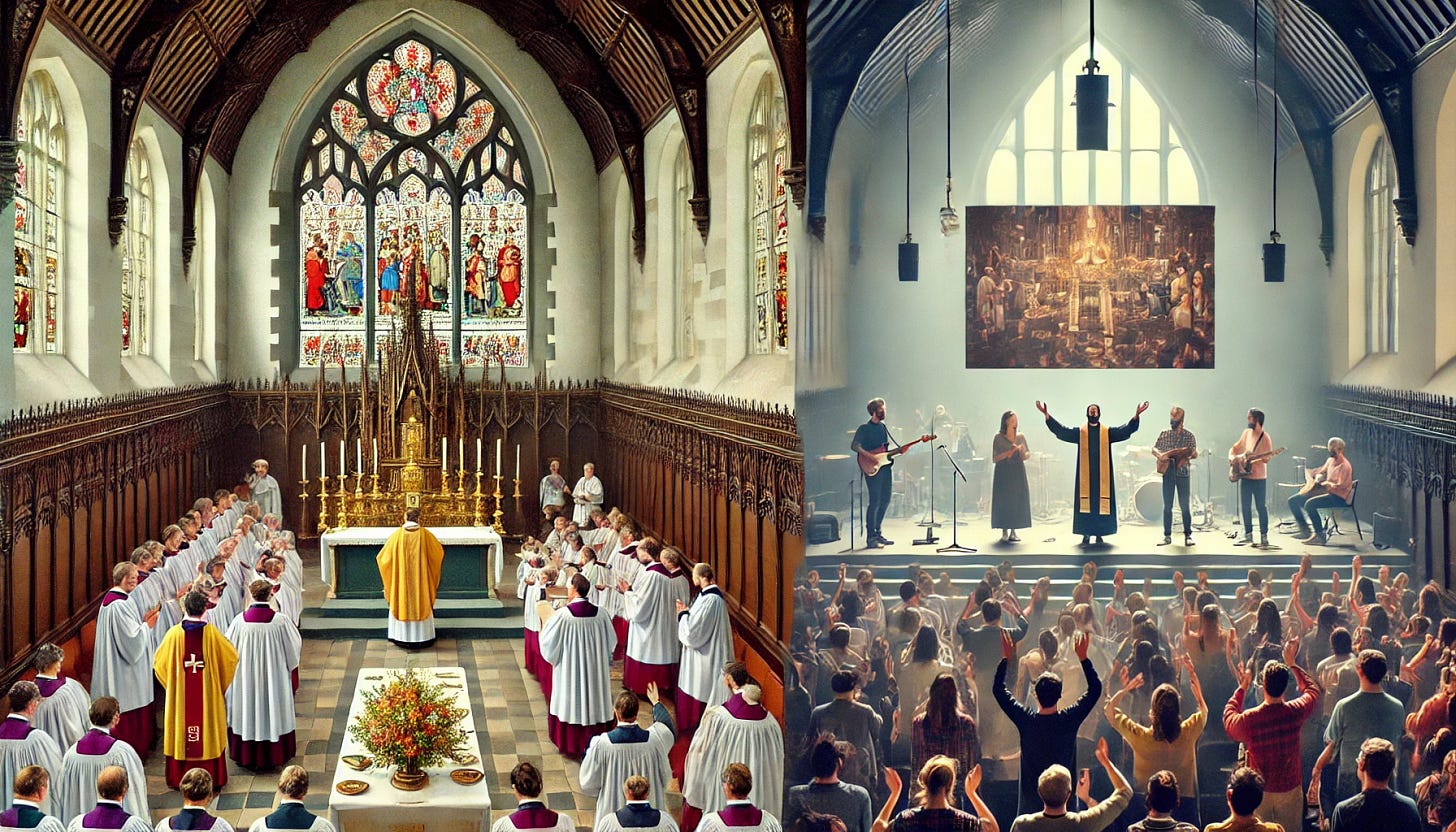When exploring the landscape of Christianity, many find themselves navigating the rich traditions of Anglicanism alongside the dynamic expressions of Evangelical churches. While both share foundational beliefs rooted in the life, death, and resurrection of Jesus Christ, they diverge in theology, worship, church governance, and cultural engagement. This article seeks to clarify these differences, offering insights for Anglicans seeking to understand their Evangelical neighbors and vice versa.
1. Theological Foundations
Anglicanism: Rooted in the via media, or "middle way," Anglican theology balances Scripture, Tradition, and Reason. The Book of Common Prayer and the Thirty-Nine Articles of Religion shape its doctrinal core, emphasizing the sacraments, liturgy, and the historical continuity of the Church. Anglicans hold to a broad theological spectrum, from Anglo-Catholic to Evangelical expressions within the tradition.
Evangelicalism: Evangelicals prioritize the authority of Scripture as the ultimate guide in all matters of faith and practice. Key theological tenets include the necessity of personal conversion ("born again" experience), the centrality of Christ's atoning work on the cross, and the urgency of evangelism. While Evangelicalism spans various denominations, it maintains a strong emphasis on biblical inerrancy and personal faith.
2. Worship and Liturgy
Anglicanism: Anglican worship is deeply liturgical, structured around the rhythms of the church calendar and guided by the Book of Common Prayer. The Eucharist (Holy Communion) holds a central place, celebrated with reverence and sacramental theology. Anglican liturgy often incorporates traditional hymns, choral music, and formal prayers.
Evangelicalism: Worship in Evangelical churches tends to be less formal and more spontaneous, often featuring contemporary music, extemporaneous prayer, and sermons that focus on personal application of Scripture. While some Evangelical congregations may observe the sacraments, they typically view them as symbolic rather than sacramental.
3. Church Governance and Authority
Anglicanism: The Anglican Church follows an episcopal polity, governed by bishops in apostolic succession. This hierarchical structure includes clergy (bishops, priests, deacons) and laity, with decisions often made through synods or councils. The Archbishop of Canterbury serves as a spiritual leader but holds no authoritative power over the global Anglican Communion.
Evangelicalism: Governance structures in Evangelical churches vary widely, from congregational (autonomous local churches) to presbyterian (elder-led) models. Authority is often decentralized, with an emphasis on the priesthood of all believers and the autonomy of individual congregations.
4. Sacraments and Rituals
Anglicanism: Anglicans recognize two primary sacraments—Baptism and the Eucharist—as instituted by Christ, alongside five sacramental rites (confirmation, ordination, marriage, confession, and anointing of the sick). The sacraments are viewed as means of grace, integral to spiritual life.
Evangelicalism: Most Evangelicals observe two ordinances: Baptism and the Lord's Supper. These are typically seen as symbolic acts of obedience rather than means of grace. The frequency and manner of observing these ordinances vary among Evangelical communities.
5. Cultural Engagement and Mission
Anglicanism: Anglicans often engage culture through social justice, education, and interfaith dialogue, reflecting a commitment to the common good. The church's historical presence in many countries influences its role in public life and social issues.
Evangelicalism: Evangelicals prioritize evangelism and missions, often focusing on personal conversion and discipleship. Cultural engagement tends to emphasize moral and ethical issues, with a strong presence in media, politics, and community outreach.
While Anglicans and Evangelicals share a common faith in Jesus Christ, their expressions of worship, theology, governance, and cultural engagement reveal distinct identities. Understanding these differences fosters mutual respect and enriches the broader Christian witness in the world. Whether through the liturgical beauty of Anglicanism or the fervent evangelism of Evangelical churches, both traditions contribute uniquely to the tapestry of global Christianity.





